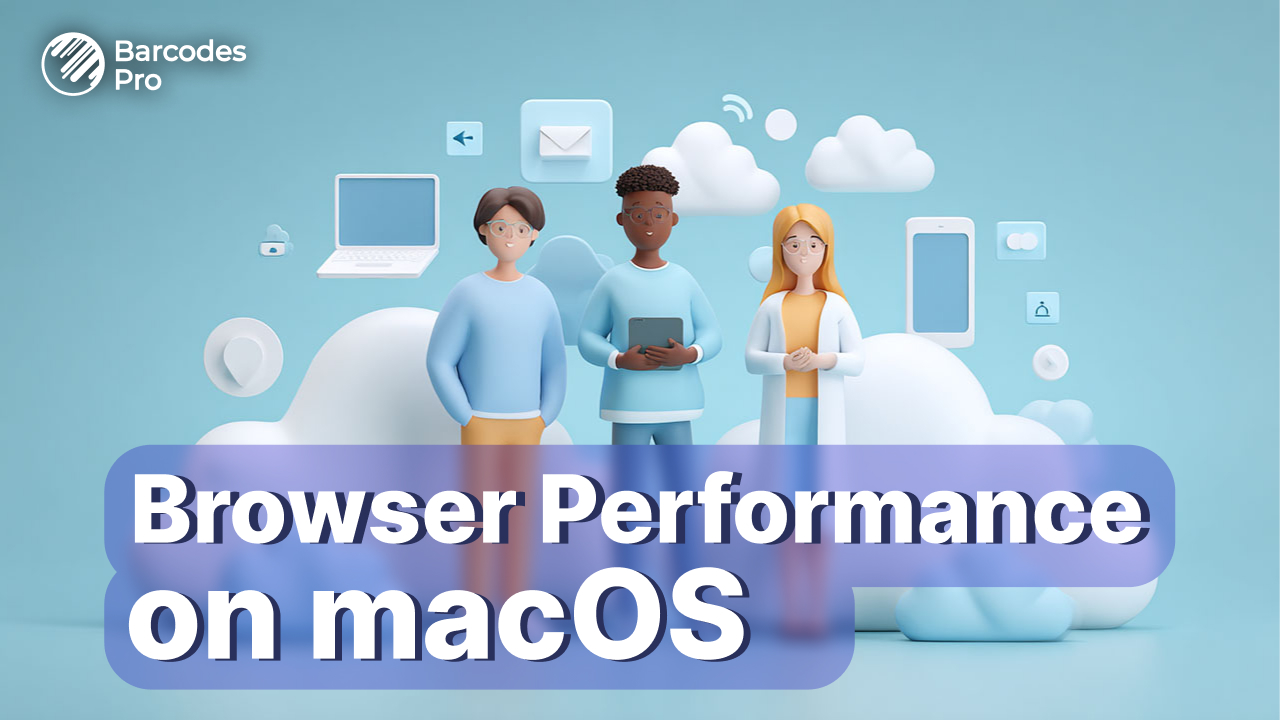
Browsers use your MacBook's system resources, such as the battery, RAM, and CPU, differently. Some browsers for Mac require more memory, others use more energy, and still, some are faster. The features in a browser matter and affect overall macOS performance. Your choice of browsers for Mac determines your experience in video playback, memory usage, and tab management.
What are the different browsers for Mac?
The best macOS-compatible browsers are Safari, Chrome, and Firefox, which are widely used globally. Safari browser is the default search engine for Apple devices and is built into Apple’s operating systems.
Chrome is built for Windows but works seamlessly on Mac. Firefox is designed to work across multiple operating systems and features many user-friendly options. Choosing the best browser for Mac is critical because it affects many things that determine user experience. Sometimes you might experience your Mac running slow and think it’s a hard disk or virus problem. Before you begin thinking about how to speed up Mac, check if the browser could be the problem.
You may try comparing Chrome vs Safari to determine which one is faster. Your search engine can slow your Mac down due to cache or too many features. Clean its history or switch to another option.
Which is the fastest browser for Mac?
You can determine the fastest browser for Mac by checking the features each offers. The Safari browser is superfast and optimized for Mac to offer low memory usage and energy efficiency. It supports HD 1080P video quality and has fewer extensions for safer performance.
Chrome is fast, too, but it cannot beat Safari in terms of speed and performance. It is optimized for web apps and runs many processes per tab, which require more memory. It is a high-energy search engine capped at 720p video quality. This search engine has many extensions, which often slow down RAM.
Firefox is the slowest in this list and slows down macOS with many tabs. It uses less energy than Chrome and is limited to 720p video quality. The browser is a cross-device sync platform with excellent privacy features and less extension impact.
The impact of browsers for Mac on everyday tasks
Many things affect Mac performance, including virus attacks, browser conditions, and data volume. If you find yourself asking, “Why is my Mac so slow?”, you might consider testing your browsers first. Compare Chrome vs Safari to determine the fastest browser for Mac. Your browsers for Mac have different impacts on your everyday tasks and productivity.
- Tab management. Opening more tabs on a Mac consumes more energy and RAM.
- Video playback. Some browsers use more CPU resources to play videos, causing the Mac to heat up.
- Multitasking. Browsers that demand more CPU resources often slow your Mac. If you open more tabs, it slows Mac and affects multitasking due to lagging.

Is Safari better than Chrome?
You may consider Safari better than Chrome depending on the features you intend to use in each browser. Do a thorough Chrome vs Safari comparison and write the features in each. Safari favors you in terms of energy efficiency, speed, and macOS system integration.
However, if you are seeking to integrate more extensions, Chrome could be the best option for you. It is the perfect search engine for cross-platform syncing, allowing users to use it on Windows, Android, and Apple devices. This browser has a larger library containing many development tools and extensions. It is also the best for web app compatibility.
Safari, on the other hand, is optimized for the macOS environment, making it top in speed and performance. It is a lighter browser that loads super-fast and extends your battery life by up to 2 hours during use. This browser benefits you with features like iCloud, Touch ID, and Apple Pay integration.
It has top-notch security features like the Intelligent Tracking Prevention, which blocks trackers. Consider these features from different angles to help compare Chrome vs Safari and decide which one will serve you best.
Why is my Mac so slow?
Your Mac could be so slow because of heavy browser usage, which causes the computer to heat up and RAM to be overwhelmed. You can speed it up by removing some extensions, deleting cache, closing some tabs, or restarting your Mac. Your computer could also be too slow because the hardware is getting older and requires replacement.
You might have too many background processes, an outdated macOS, many open apps, or low disk space. Clean your Mac by closing some apps, removing files from your hard disk, and updating macOS and apps. Use your Activity Monitor to close many background processes and remove startup programs.
Conclusion
The browser you install on macOS has a significant impact on your Mac’s battery life, speed, and working on everyday tasks. Compare several browsers to understand their features, design, and energy efficiency. Safari is the best if you are looking for speed and security, and Chrome is powerful if you want more tools and extensions. Firefox provides strong privacy and control, and does not quickly overwhelm performance.